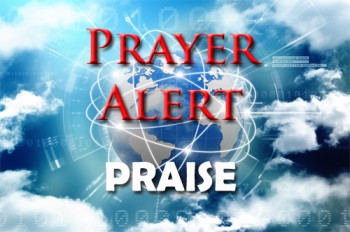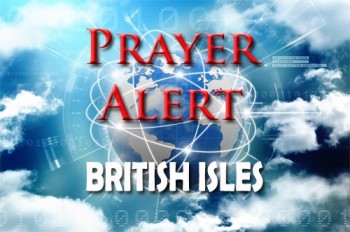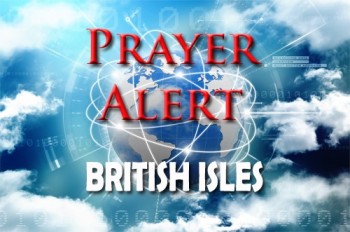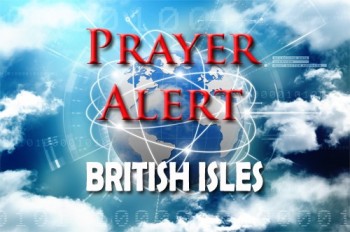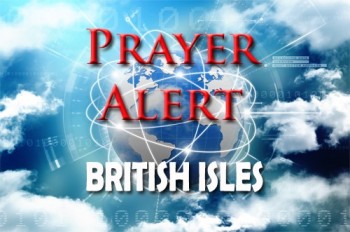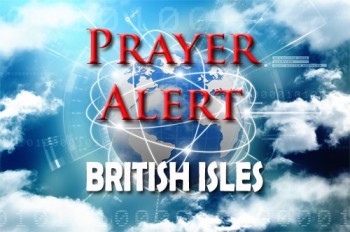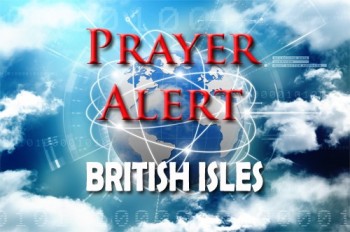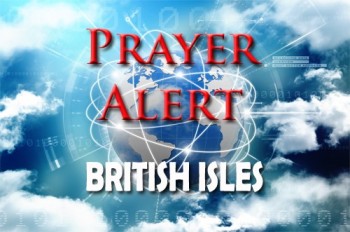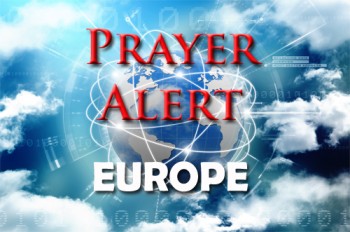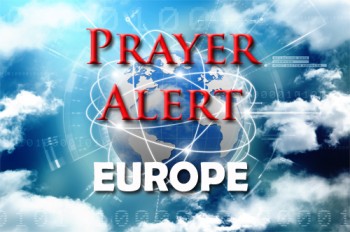
David Fletcher
David Fletcher is Prayer Alert’s Editor.
He is part of a voluntary team who research, proof-read and publish Prayer Alert each week.
If you would like to make a donation towards our running costs, please click here.
Apulstock is a safe music festival in Sussex, for people with special needs. It is organised and run by volunteers whose sole aim is to inspire and entertain people who don’t have the opportunities or support to attend the larger annual music festivals. Apulstock is a mixture of music and dance slots led by professional rap, rock and roll, and alternative musicians plus lots of fun bands encouraging audience participation in Zumba fitness and funky dance routines. Every week, across the country, there is an army of volunteers using their talents to touch the lives of the hidden 2% in our communities. They deliver special church services, discos, karaoke, sports, arts and crafts, gardening, etc to develop people’s individual strengths and support them to overcome their weaknesses.
Lord, you moved the heart of Cyrus, even though he did not know you, to do your will for the sake of the nation (2 Chron. 36:22). You changed Saul’s heart and used him to fulfil your purposes (Acts 9:4). The UK has a new prime minister. We pray that you will enable Boris Johnson to stride into your Kingdom purposes with every decision he makes. We ask You, Father, to use his strong intellect to take us on the Brexit journey and also to inject your purposes into education, the NHS, social services, police, military, commerce and industry; bringing them back onto the paths of mercy and moral laws. Father please open his mind to Your strategies for the coming months. May he lead this nation into restoration and renewal. Surround him with wise advisers who have Your vision and anointing to meet the needs of society through Brexit transitions to achieve a ‘breakthrough’ in the Irish border blockage.
In difficult economic and social times, we need strong and courageous international, national and local media, working to the highest ethical standards. To this end, the vision of Christians in the media is to see the media flourish as they become key influencers. Please pray for more churches to engage positively with the media, and for the life-affirming Gospel message of faith, hope and love to be reflected more and more in the UK’s national newspapers, community radios, websites, TV networks and blogs. Pray for more Christian researchers, writers and editors to step into key roles of international and national networks. May there be thriving media with Kingdom values woven into programming schedules. Ask God to give spiritual and moral strength to those striving for integrity and truth. Pray also for journalists around the world facing death and imprisonment for speaking the truth.
Ten-year-old Kasey, a Pentecostal Christian, is speaking out against the growing LGBT agenda in her classroom. As parents nationally protest against LGBT school lessons, the Christian Legal Centre is supporting courageous Kasey and her mother, who are taking a stand against a school seeking to eradicate any opposition to its LGBT agenda. Kasey and her Catholic friend, Farrell, were explaining in the lesson how gay people would be 'punished' for their sexuality in some countries, but their point was misunderstood and the school suspended them for five days for being homophobic. Kasey said, 'I only learned what homophobic means the other day. I'm not homophobic, I'm just against the school traching LGBT topics to children.' Kasey's mother said, 'The school is failing to recognise our Christian beliefs and is persecuting us for wanting to maintain our Bible principles.' The Christian Legal Centre said the situation reflects the sexual agenda imposed on innocent children.
Currently events in the gulf are operating just below the threshold of all-out war between Iran and the UK/USA over the Straits of Hormuz. On 24 July Al-Jazeera reported that President Rouhani has suggested that, if the United Kingdom releases its tanker seized off the coast of Gibraltar earlier this month, his country will return a British-flagged vessel it apprehended last week. Rouhani made the purported offer during a weekly cabinet meeting, assuring an ‘appropriate response from Iran’ if the UK stepped away from the ‘wrong actions in Gibraltar’. Boris Johnson will immediately have to deal with the crisis over Iran and the deployment of a European-led maritime protection mission which the previous Foreign Secretary Jeremy Hunt announced on 22 July. Six tankers have been sabotaged in six weeks: see
Since its introduction, Universal Credit (UC) has made things harder for people receiving it. Now, a court ruling has made it possible for 13,000+ disabled people to receive backdated benefit payments. People who moved from the severe disability benefit to UC, which rolls six payments into one, will receive backdated payments of up to £405 per month alongside the UC benefit. The work and pensions secretary said that claimants who had been entitled to the severe disability premium would be given ‘ongoing transitional payments’ as they moved across to UC, and those who had already moved to the new system would be eligible for backdated payments. While we can thank God for this change, we can continue praying for other support packages which need re-assessing and addressing, including dementia care and undiagnosable illnesses that do not fit into any recognised medical category but still need support with training, transport, supervision, and personal care.
On 30 July, thousands will come together to draw attention to the horrific crime of human trafficking. IJM has partnered with singer-songwriter Roo Panes to release a powerful music video to raise awareness of the brutal reality of human trafficking, and to inspire individuals to get involved and take a part in ending it. Awareness is a vital first step in ending trafficking, and it is hoped this video will reach thousands, or even millions, as people share about it on Facebook, Twitter and Instagram, using the hashtag #Warrior and #EndTrafficking and tagging @IJMUK. Everyone who wants to make a stand against trafficking is invited to find the film at: www.ijmuk.org/Warrior or on Roo Panes' YouTube. Nothing happens if people are unaware of the need: when we are aware of modern slavery, still nothing happens, unless we do something.
The European Commission has said that free ports, the Singapore-style tax-free zones favoured by Boris Johnson, are ‘potentially vulnerable to money-laundering and financing terrorism’ in the European single market. Free ports are ‘the new emerging threat’, said the European justice commissioner, Věra Jourová. ‘This is something we want to focus on more.’ Prime Minister Johnson says he wants ‘about six’ tax-free zones in ports as part of his vision for the UK after Brexit. He has yet to give details on their size and location. EU countries and their dependencies already shelter 80+ free ports, including one on the Isle of Man, a British crown dependency which is neither in the EU nor the UK. The commission’s report warned that the EU has ‘a structural problem’ in preventing the financial system from being used by criminals.
Teen climate activist Greta Thunberg delivered an address to lawmakers at France’s national assembly. But some right-wing MPs chose to stay away, saying that to fight climate change ‘we need scientific progress and political courage, not apocalyptic gurus’, and ‘Don't count on me to applaud a prophetess in shorts, a Nobel Prize for Fear.’ Greta noted that some lawmakers had not attended and said, ‘That's fine. We are, after all, just children. You don't have to listen to us. But you do have to listen to the scientists, unite behind the science.’ On 25 July, she released a music track calling for civil disobedience while ambient instrumentals provided background music that would appeal to teens. See

